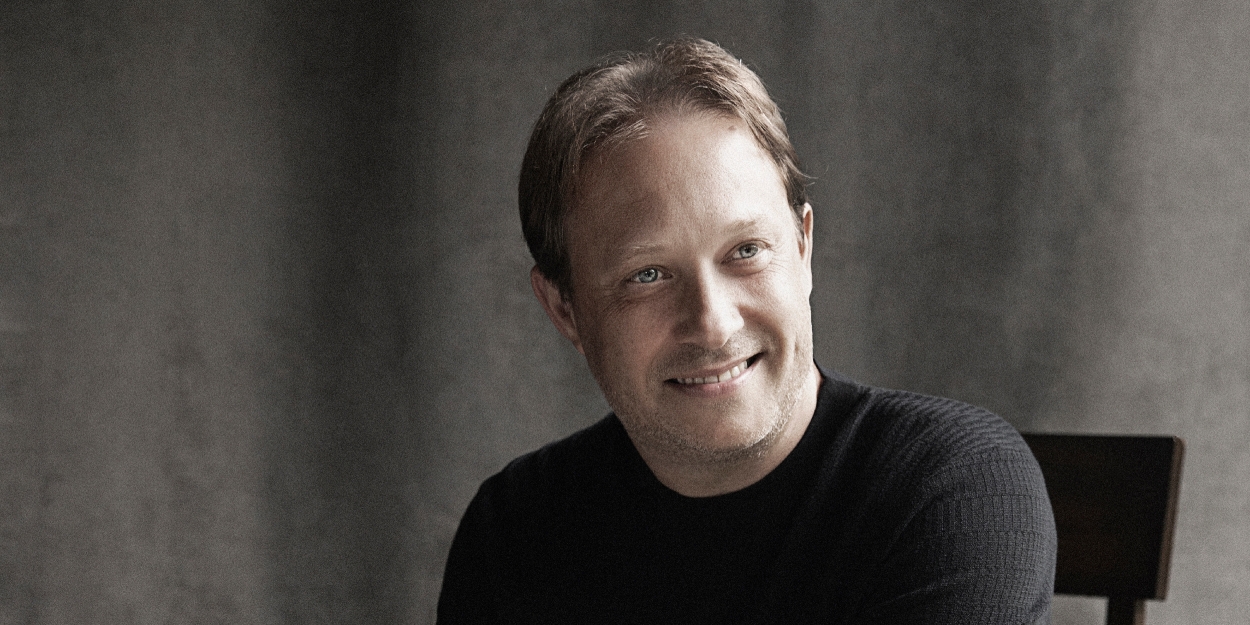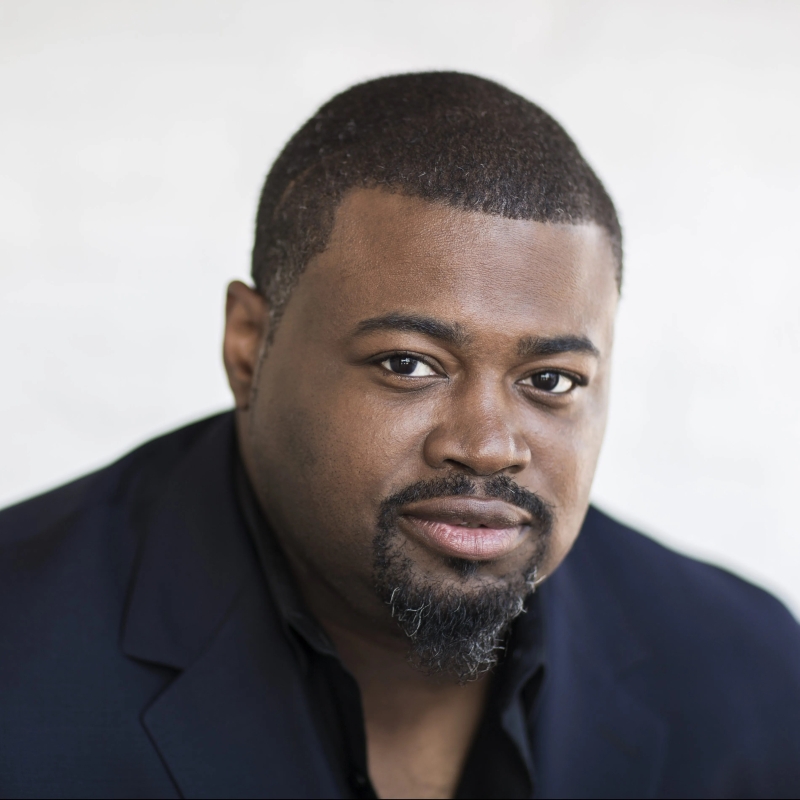Interview: Ludovic Morlot of LES TROYENS IN CONCERT at McCaw Hall
Ludovic Morlot Helms Seattle Opera’s First Les Troyens

Following his triumph in Seattle Opera’s celebrated Samson and Delilah in Concert in 2023, Seattle Symphony Conductor Emeritus Ludovic Morlot will helm an unprecedented operatic event in January 2025: the SO premiere of Les Troyens in Concert, a rarely performed abridged version of Hector Berlioz’s epic masterpiece, Les Troyens à Carthage. The SO adaptation, Part 2 of Berlioz’s monumental opera, Les Troyens, the pinnacle of the composer’s life work, begins with the arrival of the great warrior Aeneas at Carthage and ends with the tragic immolation of Queen Dido.
Morlot, who originates from a region close to Berlioz’s birthplace in France, has been recognized for his distinguished interpretations of the composer’s music, both as music director of the Seattle Symphony and in his acclaimed 2018 Seattle Opera debut, Berlioz’s Beatrice and Benedict. The high-powered cast in Les Troyens includes two operatic superstars: mezzo-soprano J’Nai Bridges, who sang Delilah in 2023’s Samson and Delilah in Concert, as Queen Dido; and formidable tenor and former Seattle Opera Young Artist participant Russell Thomas, as Aeneas.
ERICA MINER: Welcome back as always, Maestro! This is an especially exhilarating and unprecedented occasion for all of us: Les Troyens for the first time at Seattle Opera.
LUDOVIC MORLOT: Thank you! I’m always happy to talk about Berlioz!
EM: After your huge success with Samson and Delilah, we are thrilled to see you helm another French masterpiece. It must be a defining moment for you.
LM: It doesn’t come often that you have this opportunity. It’s so special that it’s an orchestra (Seattle Symphony) I know so well, in music we have explored together. Though I haven’t conducted Troyens with them, we have done Damnation of Faust, Roméo et Juliette, L’enfance du Christ. It’s only natural to do this piece for the first time with an orchestra that I’ve built a relationship with and with this music. We recorded the Requiem, and some of the early cantatas from the Prix de Rome and Les nuits d’été. It’s a vocabulary I’ve always been fond of. I always felt Berlioz was a composer I wanted to champion. Not only his music but his personality, his life. I’ve been reading as much of his writings as his music. His memoirs, of course, over and over again, but also all those Journals des débats, the Grotesques de la musique, evenings of the orchestra. It’s easy now to say, but I don’t think music would have moved so fast after Beethoven if it weren’t for people like Liszt, Schumann, and Berlioz, who was really, if not a revolutionary, at least someone who was pushing boundaries. I feel close to this voice for sure. To be able to study this opera for some time now has been a gift, really.
EM: As it was a gift for me to play it when I was at the Met. All six hours.
LM: Yes! But I think it works well to split it in halves like this. Les Troyens à Carthage somehow is its own thing. We’re adding the Prologue, which Berlioz suggested to add if you were to perform Part 2 only.* We made a few cuts, because I think without the stage some of the ballet is a little redundant. Of course, always thinking about economy, trying to cut some of the numbers, and characters that would only appear for one number. But generally speaking if you read about the premiere in 1863, and even the subsequent performances, he was forced to cut so much. It’s only recently that the full thing has been able to come to life. He even had to cut the storm [Laughs] in the second performance! I think I read that it took them fifty-five minutes to change the scenery after the storm, so he decided the next night not to have it in the opera. I think Berlioz would not have been shocked to see that opera houses today have to do a bit of cutting as well.
EM: Having only played the epic in its entirety at the Met, I’m really curious to hear more about how you went about abridging the piece.
LM: It’s two different operas in a way. La Prise de Troie and Troyens à Carthage. The big Cassandra first half with the big Dido second half feels to me that Les Troyens can be defined as two very different pieces. It’s based as you know on the Aeneid but two very specific books: two and four of Virgil with references all the time to all the other books. It’s Shakespearean in nature as well. The big love duet is actually words from The Merchant of Venice. Berlioz was constantly aware of those very big authors like Virgil and Shakespeare and so fond of them that he was rereading them constantly. He almost references them without really thinking about it. It was also interesting for me to explore all the cantatas he wrote for the Prix de Rome. He applied for it four or five times. Pieces like La Mort d’Orphée or Herminie or Cleopatra of course. It’s incredible because Death of Cléopatre is exactly the same music you find thirty-some years later as Didon’s death. Énée’s big aria is already in Mort d’Orphée twenty-some years earlier. Troyens is the accomplishment of a whole life for Berlioz, not only dramatically but also musically. You can see he’s maybe not consciously completely reusing that material from earlier, but it’s there. Like Herminie was the sketch for the Symphonie Fantastique. It’s very clear. There are moments when I find there is a bit of an idée fixe running through Troyens as well. So we really are talking about a Wagnerian kind of figure, or Debussy, where everything is connected from the first note he wrote as a young boy in his village of La Côte Saint-André to that piece he didn’t even get to see performed in its entirety in his lifetime.
EM: That’s a shame but not surprising, given the scope of it. But his ties to Shakespeare were hugely significant. He himself wrote of combining his love of Virgil with “a great opera, designed on Shakespearean lines,” which I believe he accomplished in Les Troyens.
LM: Absolutely. All the way. Also his love for ancient literature, Greek and Roman heroes, is something that comes from having explored this as a young man. Having to write on a very specific topic for the Prix de Rome. I’m completely convinced of that. Also coming from his education, his father of course, but they were reading Virgil around the dinner table [Laughs]. And he fell in love with the actress, Harriet Smithson, who was the Shakespearean actress of the time and became his wife for a brief period. His whole life was swimming in that aesthetic.
EM: Let’s go back to your Troyens performances. Have you started working with J’Nai Bridges and Russell Thomas in the fiendishly difficult leading roles of Dido and Aeneas?
Todd Rosenberg
LM: Not yet. We start on Sunday (Jan. 12). J’Nai of course was my Delilah not too long ago in the Saint-Saëns Samson. Russell Thomas I haven’t worked with, but he’s the perfect voice for a character like Énée. I worked with Panthée (Andrew Potter) in the Saint-Saëns production. Seattle Opera is always faithful to that family of singers and brings out the best from everybody in their casting. I think it will be very interesting to have J’Nai and Russell in their debuts of those two big roles.
EM: I heard Russell sing Roberto Devereux in San Francisco and was struck not just by the beauty of his voice but also the power and sensitivity combined with it.

Fay Fox
LM: I look forward to it. There’s a bit of staging happening, but it’s also one of those operas where the chorus is so important. That is something else in Berlioz that is so unusual. In Verdi, the chorus tells you the story. Here the chorus is showing the emotion. The chorus participation in this opera is as intense as the quasi-oratorio of Samson et Dalila. It’s very unique in that sense. We’ll have rather small forces in this music, but I would say better to do it that way than not do it at all. Of course I wish we could be giving Berlioz what he asked for: a 300-piece chorus, 6-8 harps, etc. and all the Bandas, which will be integrated into the brass parts in the orchestra onstage because we couldn’t possibly hire all those extra brass musicians (offstage).
EM: Will any of the ballet music be included?
LM: Yes, a little bit. The Danse des Esclaves, in the abridged version without repeats, but that’s about it. Most of these would make no sense at all without the context of the ballet onstage. Some ends of numbers have been abridged. They actually were lengthened by Berlioz to allow more time for the scene change. As we don’t really require this, we came up with an abridged version. Most of the other music, les laboureurs, all those kinds of ballets, it doesn’t make sense if you don’t have dancers onstage. It will not take anything away from the genius of Berlioz.
EM: If you’re going to include one ballet, Esclaves is the one.
LM: Absolutely. Hopefully it could be an inspiration for Seattle Opera—any opera house, for that matter—to have the ambition to stage this opera at some point. It would be an introduction to the audience in Seattle also because it’s not music they would have had the chance to experience locally.
EM: Meanwhile, I have no doubt your Troyens à Carthage will be magnificent.
LM: I hope we have enough time. This is not such straightforward music to put together. Time is the enemy for us, always.
EM: But I have faith you will make the most of it, and I thank you for providing us with an insider view of this rare concert version of Les Troyens.
LM: It’s a pleasure.
EM: I wish you toi, toi, for what I’m sure will be a splendid success.
LM: Thank you.
Les Troyens will be performed on Jan. 17 and 19 at McCaw Hall: https://www.seattleopera.org/performances-events/les-troyens/
*(“For this production a prologue was composed by Berlioz in June 1863 to summarize the action before…” —The Hector Berlioz website)
Photo credits: Lisa Marie Mazzucco (Ludovic Morlot), Todd Rosenberg, Fay Fox
Comments
Videos

